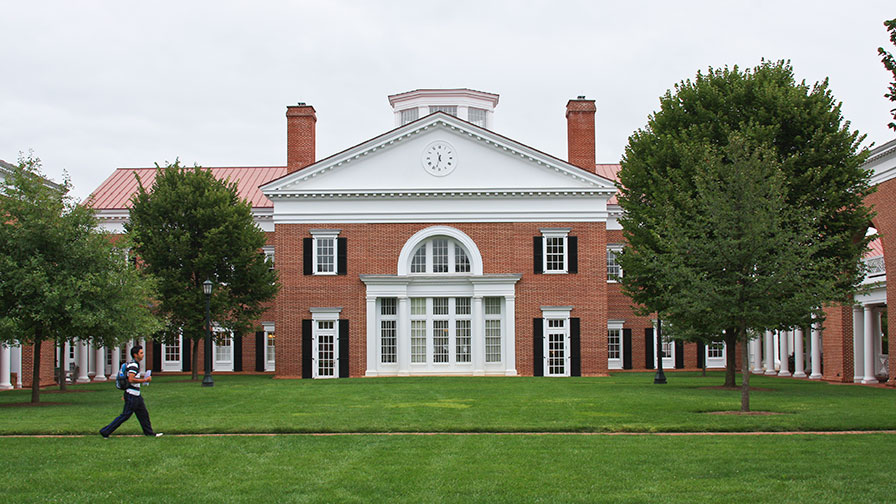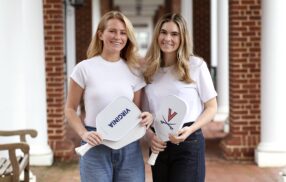
I.Lab Startups in Focus: Dreampower and Contraline
By Jay Hodgkins
Early-stage startup is a fast-moving time for entrepreneurs.
Just ask Philippe Sommer, director of the i.Lab at the University of Virginia and director of the Darden School of Business Batten Institute’s Center for Entrepreneurial Leadership. Not only has he been in the hot seat as an entrepreneur himself, he watches the rapid rate of flux and change among startups every season as he oversees the i.Lab Business Incubator program.
“The pitches our cohort made on the first day of the 2015 program were better than the first pitches from any other year,” Sommer said, “but by the end, some had really pivoted.”
DreamPower, founded by Alexander Bazhinov (MBA ’15), and Contraline, founded by Kevin Eisenfrats (Engineering ’15), were two such startups. As businesses, they have little in common. DreamPower is an energy efficiency services company that was able to quickly approach customers and start earning revenues. Contraline is developing a revolutionary new form of male contraception, which may take years of research, development and regulatory approvals before it enters the market.
But both finished the 10-week 2015 summer i.Lab Incubator pitching a much different story than when they entered.
DreamPower
For DreamPower, the shift was born of opportunity.
Bazhinov is an idealist. He believes reliance on fossil fuels to generate energy is the biggest threat facing humanity today. More importantly, he believes he can help solve the problem, which motivated him to start DreamPower.
The company offers a fixed monthly fee for electricity to businesses that is guaranteed to be lower than their existing power bill. In exchange, DreamPower makes energy efficiency improvements at its customers’ buildings, driving down their energy usage and allowing DreamPower to profit on the difference between the monthly fee it charges and the actual charge for electricity used.
In conversations with his current and prospective customers, Bazhinov discovered the traditional circuit breaker box was a major opportunity to drive more energy savings. If he and his customers could more easily control when and where electricity was flowing in buildings, they could eliminate a lot of energy waste.
And so the CircuitBot was born — Bazhinov’s prototype of a smart circuit box, a wireless device he thinks of as the Nest Learning Thermostat for circuit boxes. Nest, of course, being the smart thermostat that turned thermostats from an afterthought to one of the hottest consumer electric goods on the market seemingly overnight.
CircuitBot’s design is slick, easy to use and functional, doing what all circuit boxes do while also including smart technology features like energy usage tracking, programming to control lights and home appliances, energy usage spike alerts, and even the ability to integrate with other smart devices like a Nest Thermostat to maximize energy savings.
Bazhinov was able to come up with such a comprehensive suite of features by listening to the problems his customers needed solved.
Potential investors saw the possibilities, too. After his final pitch to close out the i.Lab Incubator summer program, Bazhinov said all anyone wanted to talk to him about was the CircuitBot.
Today, he is working with the UVA School of Engineering and Applied Science to further develop and refine the prototype. He is also working with UVA to secure patents for the technology. Unlike the energy efficiency services offered by DreamPower, the CircuitBot will require serious capital to develop, which is why he’s currently seeking investors.
Eventually, the CircuitBot may be the exciting product DreamPower leads with as a free or low-cost offering to secure a lucrative energy efficiency services contract. One thing Bazhinov is sure of, though, is that DreamPower will not evolve into a product sales company.
“My vision is for a clean energy future and I want to help customers realize that vision, so energy services are essential,” Bazhinov said. “I don’t just want to sell them a product and walk away.”
Contraline
The endgame for Contraline was always to offer nonsurgical contraception for men, Eisenfrats just thought that providing a more humane alternative to neutering male dogs and cats would serve as a promising first market for the product.
As it turns out, even solid demand from consumers and a unique, effective product aren’t always enough to crack the nut. Especially when a middleman is involved.
In this case, those middle men and women are veterinarians, who have been profitably neutering animals for decades with little incentive to change. Eisenfrats discovered many vets were not familiar with the latest research on the dangers of neutering and that change was a complication they weren’t yet willing to take on.
“Following the principles of lean startup, the market research should be done before product development,” said Eisenfrats. “When I was coming up with the idea for cats and dogs, I didn’t talk to vets first. I saw demand from pet owners and figured that would do. It was our fault for not doing enough market research.”
That setback didn’t change the fact that Eisenfrats had led the development of a unique product. Contraline has enough potential that, after winning multiple UVA entrepreneurship competitions, the venture was selected as one of only seven finalists for the nationwide Collegiate Inventors Competition.
Unlike other contraceptive polymer gels that block the vas deferens and thus block the flow of sperm, Contraline is “echogenic” — the gel can be imaged using ultrasound devices so that doctors and nurses can check its stability and ongoing effectiveness. Contraline can also be applied “percutaneously,” which means no surgery — a major advantage over traditional vasectomies. It is effective for years but can be reversed at any time, and the end result is a vastly preferable alternative to vasectomy.
The question, then, was how to fund Contraline through years of research and development for humans without a market for dogs and cats producing revenue.
Fortunately, Dr. John Herr, director of the UVA Health System’s Center for Research in Contraceptive and Reproductive Health and a leader in the field of reproductive biology, had teamed with Eisenfrats as a partner in the venture and had some ideas. The two met years ago when Eisenfrats, then an engineering undergrad working in the doctor’s cancer research lab, first shared the idea behind Contraline.
Through his contacts in the industry, Herr was aware there was little to no market for pet contraception, but he also knew of a Holy Grail for nonsurgical animal sterilization — the Michelson Prize. Launched in 2008 by the foundation Found Animals, the incredible $25 million prize will be awarded to the first entity to provide a qualifying low-cost, permanent, nonsurgical sterilant for male and female cats and dogs.
Herr helped Eisenfrats devise a plan to develop Contraline in such a way that the venture could compete for the massive prize while also hitting crucial milestones on the way to securing regulatory approval to use the gel on humans, such as successful testing on two animal species.
Since the prize is no sure thing, Herr is also using his extensive connections in the medical profession to help Contraline find partnering opportunities that will bring resources and development benefits to complement Contraline’s competitive advantage.
Eisenfrats is also leading an effort to secure angel investors who can provide a total of around $400,000 in seed funding. “Kevin’s product is mature enough,” Herr said. “He is going to be able to get capitalized.”
According to Herr, Contraline’s biggest advantage is Eisenfrats, a recent graduate who is thriving in an arena dominated by doctors and experienced researchers.
“Kevin is a force of nature. He is able to absorb a lot of information,” Herr said. “The reason this really has a chance is because Kevin understands the business plan changes every day; that he needs to be extremely flexible and adaptive.”
The University of Virginia Darden School of Business prepares responsible global leaders through unparalleled transformational learning experiences. Darden’s graduate degree programs (MBA, MSBA and Ph.D.) and Executive Education & Lifelong Learning programs offered by the Darden School Foundation set the stage for a lifetime of career advancement and impact. Darden’s top-ranked faculty, renowned for teaching excellence, inspires and shapes modern business leadership worldwide through research, thought leadership and business publishing. Darden has Grounds in Charlottesville, Virginia, and the Washington, D.C., area and a global community that includes 18,000 alumni in 90 countries. Darden was established in 1955 at the University of Virginia, a top public university founded by Thomas Jefferson in 1819 in Charlottesville, Virginia.
Press Contact
Molly Mitchell
Associate Director of Content Marketing and Social Media
Darden School of Business
University of Virginia
MitchellM@darden.virginia.edu





